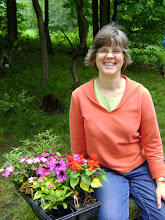Being diagnosed with a terminal disease is perhaps like being at a train depot. Despite the company of friends and family who have come to see you off, you will board the train alone. And now you know the train has just left the other station to collect you.
For the 800 patients of Machame Lutheran Hospital diagnosed with HIV/AIDS, the future means waiting and wondering. When will the disease claim them? Who will take care of their children? And in the meantime, while they are still alive, how will they have the strength to care for the children?
Anti-viral drugs have worked to delay the train‘s arrival. Parents can care for their children for years, rather than weeks or months. But this life with a slow-moving train is fragile for those also afflicted with poverty. Periods of illness mean that a farmer returns home after weeks in the hospital to find all his chickens dead. Children are sent to relatives who can care for them, but who takes care of them when the relatives have died?
Palliative care and treatment at Machame Lutheran Hospital includes counseling and giving ongoing care to patients. But like the friends and family who linger at the train station, the waiting can be uncomfortable. What to tell the woman who desperately wants to know that she didn’t get the virus from sexual contact but from the blood transfusion in 1998?
What to tell the woman who asks, will I have to take this medicine if there’s a cure? How tempting it must be to tell her a cure means she can stop, praise God, dance for joy. But her thoughts have gone down an insidious trail: she’s thinking that she might consult a wizard for a cure, or someone in a white lab coat may come along and have a cure if she pays the right amount of money.
The people who offer palliative care and treatment understand that waiting at the train station does not always mean giving comfort. It means breathing in the silence of someone devastated not only by disease but by loss of a spouse, parents, and fears of an unknown future.
Palliative care and treatment at Machame Lutheran Hospital has branched into the building of homes that are simple, but warm and dry. The alternative--houses insulated with synthetic gunny sacks and thatched leaky roofs--are welcome places for tuberculosis in this damp cold climate on the edge of the rain forest.
There are other difficult questions that crop up for these patients: How can I make an income if my life’s work is physically difficult, like farming or selling banana beer?
And then there are the questions of how to be a human: Can a life extended by anti-viral drugs also mean marriage again? Can it include children? Does someone with AIDS only live partially or can one live fully?
In the month of April, during the four-month rainy season, men and women dot the mountain striking the soil with spades, planting their crops, and watching them grow. And for others, there is the waiting at the station.
Note: If you or your congregation or other group wish to donate a House for Health, please contact Rev. Martin Russell at the Nebraska Synod (mjruss@mac.com) or Bob Kasworm at Machame Lutheran Hospital (bkasworm@yahoo.com) . Currently one house can be built for $4,000. One hundred percent of the labor is provided locally and 99% of the materials used are local. Houses for Health is building its 19th house.
Wednesday, May 5, 2010
Subscribe to:
Post Comments (Atom)

No comments:
Post a Comment